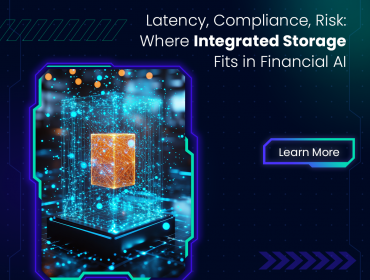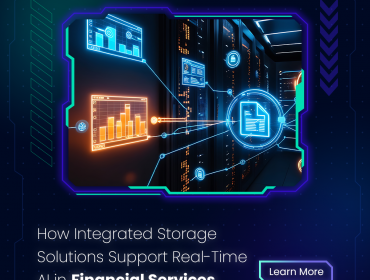Data storage has always been a major concern for industries especially for the IT sector and sectors dealing with highly unstructured data. There has been a rise in the demand for cloud technologies as Indian enterprises are considering bridging the communication gap in the workforce and customer base, both of which have become more distributed. Cloud based solutions aid in the best in class protection and security of company data and information, fostering a culture of technology trust. With a substantial portion of company activity moving to the cloud, India’s multibillion-dollar cloud services market is likely to grow even faster.With practically every business running on a cloud network and database, securing the cloud has never been more important, below are the most important reasons why.
With more than 60% of all enterprises in India using some form of cloud computing, it’s clear that this technology has experienced a rapid growth in the past few years. Cloud computing enables businesses of all sizes to function at scale, reduce capital costs, and manage their IT infrastructure.Depending on business needs, multiple types of cloud deployment can be considered by a business. These are grouped together in three types: Private Cloud, Public and Hybrid Cloud.
However, transitioning to the cloud doesn’t come without its own set of security challenges. Here is why cloud security is important for all enterprises.
- Guard Against Security Breaches: The cost of an average security breach for a company is an approximate $3.8 million, according to Gartner.Because you no longer have complete control over your data on the cloud, data security is critical. If, for example, one chooses to run applications on either a public or hybrid cloud, the business is effectively putting trust in a thirdparty. This means, one must stay on top of things and ensure that your cloud computing provider understands this responsibility. Since provider’s best interests is to provide top security for long-term business prospects, you, as the client, must likewise go above and beyond.
- Manage Remote Work: One of the benefits of using cloud computing is the sheer accessibility of data. Some of the critical applications can be accessed by employees from anywhere in the world. As a result, flexible work arrangements and the ability to hire people from all over the world are possible. The disadvantage of this structure is that staff may fail to follow cybersecurity best practises.If an employee is using public WiFi to access the web, this practice entails an inherent security risk. They might also use personal laptops and phones to carry out their tasks which means they’re more susceptible to malware and phishing attacks.
- Ensure Disaster Recovery: One of the aspects of business continuity planning is having a comprehensive disaster recovery plan in place. This could wipe out all the data. Unless the data is safely secured and protected, one could potentially be at risk of at a total standstill. 4. Eliminate Weak Links and Build Access levels: 40 percent of organizations using cloud storage accidentally leaked data to the public. This had jeopardised their business ethics and given their competitors an advantage. These leaks weren’t a result of malicious intent; rather they were a result of poor security and best practices. One best practice of cloud security is enforcing access controls on employees by just limiting access to data only to those individuals who need it. This makes it far more difficult for hackers to break in and prevents data leaks due to human error. Hence, when it comes to managing and assessing cloud technology, businesses must consider upscaling service levels such as uptime and speed of data transfer are key, but security cannot and should not be dismissed. As more such as uptime and speed of data transfer is key, but security cannot and should not be dismissed. As more businesses shift to the cloud, security will become even more important because it’ll be the only way hackers can potentially infiltrate a company’s defenses.
Our Tyrone Cloud suite includes industry-leading workload manager designed to improve productivity, optimize utilization and efficiency, and simplify administration for HPC clusters, clouds, and supercomputers.












